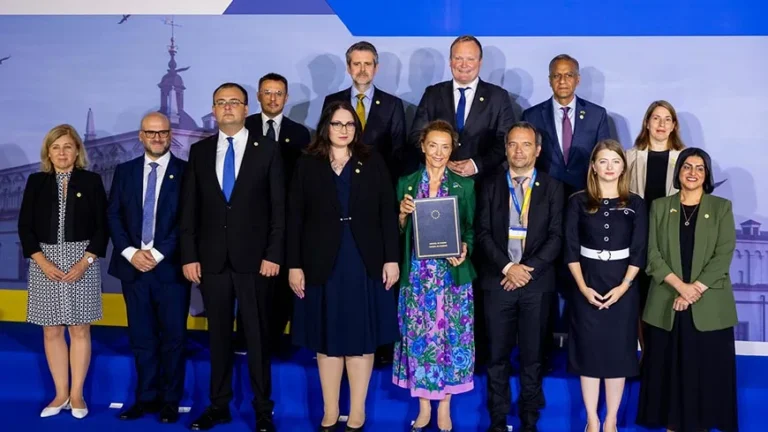The Framework Convention of the Council of Europe intends to bring artificial intelligence within the realm of human rights and democracy.
An artificial intelligence (AI) safety pact that was drafted by the Council of Europe (COE), an international body that focuses on human rights and standards, has been signed by a number of countries, including the United States of America, the United Kingdom, and the European Union. This historic agreement, which is referred to as the Framework Convention on Artificial Intelligence and Human Rights, Democracy, and the Rule of Law, was made available for signature at Vilnius, which is located in Lithuania. This is the first international agreement that is legally enforceable and aims to ensure that artificial intelligence systems are in line with democratic principles.
The treaty places primary emphasis on three primary areas: the protection of human rights (including the prevention of discrimination and the protection of privacy), the preservation of democracy, and the maintenance of the rule of law. Furthermore, it offers a legal framework that encompasses the whole lifecycle of artificial intelligence systems, thereby fostering innovation and effectively controlling possible dangers.
In addition to the United States of America, the United Kingdom, and the European Union, the pact has also been signed by Andorra, Georgia, Iceland, Norway, Moldova, San Marino, and Israel. According to a statement released by the Council of Europe, the absence of a number of significant countries from Asia and the Middle East, as well as Russia, is notable; nonetheless, any country will be entitled to join it in the future as long as they commit to complying with its terms.
Marija Pejčinović Burić, the secretary general of the Council of Europe, made a statement in which she stated, “We must ensure that the rise of artificial intelligence upholds our standards, rather than undermining them.” In order to guarantee precisely that, the Framework Convention was developed. As a consequence of the open and inclusive strategy that was used to draft it, which ensured that it benefits from numerous and expert perspectives, the text is robust and well-balanced. This is the result of the approach that was used.
It will take three months for the treaty to become legally binding when it has been ratified by five signatories, which must include at least three member nations of the Council of Europe. A number of additional recent initiatives to regulate artificial intelligence have been undertaken, such as the United Kingdom’s AI Safety Summit, the Hiroshima AI Process coordinated by the G7, and the United Nations’ resolution on AI.

